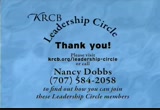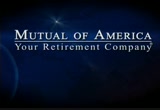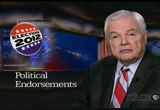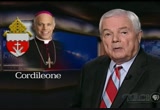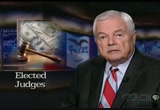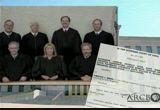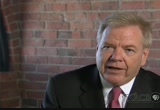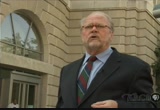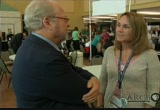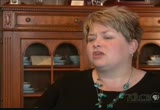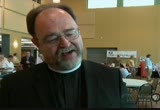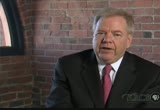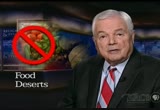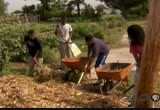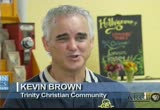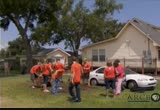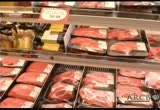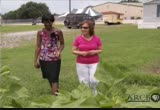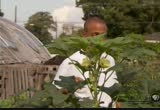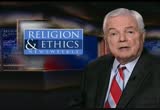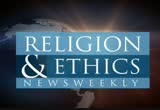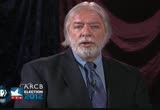tv Religion Ethics Newsweekly PBS October 7, 2012 10:00am-10:30am PDT
10:00 am
coming up, a lucky severson report on lobbying to defeat state supreme court justices who make decisions the lobbyists don't like. can justices remain impartial when they have to raise money for re-election? also, a judy valente story on the thousands of neighborhoods -- urban and rural -- where the residents have no access to food that is fresh. they call them food deserts. and after the solemn high holidays, the exuberant jewish
10:01 am
10:02 am
earlier in the week, thousands of conservative christians gathered in philadelphia to pray for the future of the country. organizers said the rally was not political, although same-sex marriage and abortion were widely denounced. they also called for 40 days of prayer leading up to the election. meanwhile, this weekend, a conservative christian group is urging pastors to challenge federal law by endorsing political candidates from the pulpit. those who do so risk losing their churches' tax-exempt status. according to a recent survey by the christian polling organization lifeway, 87% of pastors believe pastors should refrain from making political endorsements. the survey included both evangelical and mainline clergy. the supreme court opened its new term on monday and a majority of the justices -- six of the nine -- attended the annual red mass, held the nday before at st. matthew's cathedral in washington.
10:03 am
at the annual event, catholic leaders encourage the justices to draw wisdom from their faith as they make their decisions. the court is set to tackle controversial issu oncagain this term, includina case involving affirmative action at the university of texas. many religious groups are anxious to see if the court will also agree to hear arguments on same-sex marriage. a leading opponent of same-sex marriage, catholic bishop salvatore cordileone, has been elevated to archbishop of san francisco. cordileone was formally installed in a ceremony on thursday. in the past, the archbishop said catholics who support same-sex marriage should not receive communion. the epcopal bishop of california said he will work with cordileone on some issues, but he also said he'd welcome
10:04 am
into the episcopal church catholics who "may find themselves less at home" under the new archbishop. we have a lucky severson story now on the growing role of money in the election of judges. in iowa, the governor appoints a supreme court justice and then, later, the people vote on whether to retain that justice. in 2010, a group of christian conservatives organized a million-dollar ad campaign targeting three supreme court justices who had voted to allow same-sex marriage. the lobbyists won, raising the question, in iowa and elsewhere. if justices have to depend on campaign donations, can they remain fair and impartial in court? >> reporter: this was the family leadership summit in august on the outskirts of des moines, iowa. for christian conservatives from throughout the state and from as far away as alaska, this was the place to be. the hot subject of this day was
10:05 am
judicial restraint. listen to former republican presidential candidate rick santorum. >> we need to make it very, very clear what our values are, and that they are not to have elitist judges rule from on high and tell us that we have to fundamentally change who we are as americans, and that's what this is about. >> reporter: what this was about in particular is that iowa's seven supreme court justices ruled in 2009 that a state law prohibiting same-sex marriage violated the iowa constitution. in 2010, three of the seven who were up for retention we voted off t bench. it was decisive and it was orchestrated in large part by a nonprofit organization called the family leader, founded by bob vander plaats. >> when you have a supreme court that is willing to legislate from the bench saying iowa will now be a same-sex marriage state and when you allow them to amend the constitution basically saying we're going to grant rights that our founders could
10:06 am
have never imagined, that is a dangerous path to go on. >> reporter: this is former justice michael streit, onof those removed from the bench after serving 27 years, 9 years on the state's highest court. >> we did what we had to do, not what we wanted to do. and that's the essence of good judging. good judging, a fair and impartial court are courts that are allowed to rule as they must, not how they want to rule, and that's what we did here. >> judges have one job and one job only. they take an oath to uphold the constitution. >> reporter: rachel caufield is a professor of political science at drake university and a research fellow at the american judicature society. she thinks it's the family leader and other conservative groups around the country, that are inserting money and politics into the judicial system. >> i think we have a movement afoot to politicize our courts and in politicizing our courts i think basically that undermines
10:07 am
the quality of justice in america. there's definitely a trend nationwide. we've seen a huge increase in campaign spending among judicial candidates, many of whom are supported by similar interest groups. >> reporter: according to the nonpartisan group called justice at stake, from 2000 to 2009, money spent on state supreme court justice races jumped more than two and a half times to over $206 million. in iowa in 2010, money spent, mostly from out of state totaled over $1.2 million to unelect the three justices there with ads like this -- >> if they can redefine marriage none of the freedoms we hold dear are safe from judicial activism. to hold activist judges accountable, flip your ballot over and vote no on retention of supreme court justices. >> they were attacking judges that had devoted their lives to being fair and impartial, to not
10:08 am
let theology, ideology, campaign considerations, political considerations sway their opinions one way or the other. >> we're seeing that increasingly the money that's being given to judicial campaigns, and particularly contested judicial campaigns around the country, is really dominated by a few super spenders. the average donation beyond those, that handful of super spenders, is very low. >> reporter: at the leadership summit, vicki crawford doesn't think money makes much difference. does it worry you that the person who has the most money is more than likely going to win? >> actually my thought is the truth will win if it's given enough of an opportunity to be out there. >> a lot of people make a big deal about, okay, money came from a lot of different places. only the people of iowa were allowed to vote on this issue. and iowans are very intelligent, they're very savvy. they voted those three justices off, and i think there were 76judges on that ballot that year, only those three judges lost their job. everybody else kept their job. >> reporter: vander plaats says
10:09 am
he does not want to see the courts politicized, doesn't want to see judges campaigning door-to-door. it was, he says, the iowa supreme court "extremist" justices who inserted politics into the system. >> if you really value a fair and impartial judiciary then you have to ask yourself, you know, what about these people who are politicizing the judicial branch and who are going after judges knowing that it's difficult for judges to respond, knowing that when a judge responds that automatically throws their integrity into question. >> reporter: the gay marriage decision was unanimous. all seven justices -- some democrat, some republican -- voted to invalidate iowa's ban. in iowa, the governor appoints the justices who then have staggered terms. three lost their jobs in 2010. another is up this year and then the other three will be up for retention in upcoming years. the family leader's founder
10:10 am
wants them all punished. >> i'm going to go back to being a high school principal. sometimes when we'd have under-aged drinking going on and we'd show up at a beer party and say only three kids remain there. well, those three got the discipline to them, but if we knew there was four others, we called on the four others to fess up and accept the same kind of punishment that the other three did. >> reporter: this year, justice david wiggins is up for retention, and he has already been targeted by the family leader. >> judges are not there to impose their will on the rest of us. will you decid on this election day to vote out justice wiggins and send another strong message here in the state of iowa? [ applause ] >> we do have the right to kick them out if they're not abiding by the constitution. the idea that judges predetermine what their decisions would be on hot button issues, before they reach the bench, what that effectively does is it says that the entire judicial process is a sham.
10:11 am
>> reporter: but that is a view not held by some at the family leadership summit. >> the people have the right to know what the beliefs and convictions of a candidate for any position, whether that be a justice or a judge or a senator or representative. simply to say "i'm going to uphold the law" is no longer adequate, as we have taking place within our culture a collision of two fundamentally different views of the meaning of the constitution and the nature of american political life. >> all across the country, every citizen deserves to know that if they're going to walk into a courtroom, they're going to have a fair trial and a decision's going to be rendered by a judge who's not tarnished by any sort of political agenda, and when we start inserting politics into the judiciary we threaten that ideal. >> reporter: there are several other states where spending on judicial races appears to be
10:12 am
setting records. and now, a new study by the center for american progress shows that judges in races that have seen the most campaign spending between 2000 and 2010 have ruled in favor of big business 71% of the time. >> the study confirms that those judges that have to raise money to get elected and to get reelected, they know who's buttering the bread. they know that they are going to have to please somebody. these corporations that give money to judges are not doing it out of civic interests for good courts. they're trying to get people that will rule in their favor in the long run. >> reporter: it's an important discussion because state courts decide the vast majority of the country's legal cases. for "religion & ethics newsweekly," i'm lucky severson in des moines, iowa.
10:13 am
in many parts of the country, poor people do not have access to fresh food. such areas are known as food deserts. we have a story today from judy valente about churches and communies in new orleans that are growintheir owfresh food and otherse doing what they can to create what they call food justice. >> this garden is the result of a lot of blood, sweat and tears and hard work in a neighborhood that a bunch of folks had given up on. >> reporter: community activist nat turner is surveying a site people rarely see in the battered ninth ward of new orleans.
10:14 am
his community garden provides fruits and vegetables to people hard pressed to find fresh produce in these parts. >> anybody in the neighborhood can come by and some time this morning somebody's going to stop by and say, "you got any okra? you got any creole tomatoes? you got some bell peppers? you got whatever?" and some people just come by the garden and if they want to pick it themselves, they can pick it themselves. >> reporter: new orleans' ninth ward is what the u.s. department of agriculture calls a food desert. food deserts are communities with little or no access to healthy food. for the urban poor, here and elsewhere, grocery shopping is often limited to places like this -- higher-priced local convenience stores that are short on fresh healthy food and long on snacks and liquor. the problem extends well beyond new orleans. the agriculture department estimates that 23.5 million americans live in food deserts, more than a quarter of them children. the reason food deserts exist comes down to simple economics. large grocery chains and high-end supermarkets say they don't have enough of a customer base in some neighborhoods to make opening a store profitable. >> there are a lot of different solutions to food deserts and one size doesn't fit all.
10:15 am
>> reporter: increasingly though churches and other faith-based organizations are stepping in to help. nat turner's project is called our school at blair grocery, a learning center named after a store that existed on the site before hurricane katrina. his garden or "urban farm," as turner likes to call it, is more than just a pipeline for providing fresh produce. his students learn composting, poultry husbandry, and greenhouse management, among other things. >> it's a safe space for young people to work in and be around in a neighborhood that otherwise is kind of wild, wild west and a little bit dangerous. we have classroom time, we have outside time, we've got just kind of casual kicking and hanging out time. >> reporter: the produce is free for people in the neighborhood. through a combination of government and private funds, young people are paid to work in the gardens and also learn to cook the food they grow. >> the other challenge is people don't really know what to do with food. you know, they're not sure how to cook fresh vegetables.
10:16 am
so it's easier to buy meat and make french fries, right? and so what you end up with is kids who have full bellies, but they're starved. >> reporter: food deserts contribute to high rates of diabetes, obesity, and cardiovascular disease. the problem is particularly acute in areas where the only option for food shopping is a small neighborhood convenience store. >> we really need to care about the entire person, holistically. if we're just caring about a person's soul, their spiritual part, then we're not really caring about people. >> reporter: kevin brown grew up in holly grove, another neighborhood devastated by hurricane katrina. his father was the pastor of a church in the neighborhood. >> in our community, there was a high incidence of heart disease, diabetes and food-related illnesses. and so we envisioned using space that had been ruined by katrina in a new way, repurposing this old nursery to become a farm and market so that we can feed the people of the community and take care of some of those food-related illnesses.
10:17 am
>> reporter: brown's project receives funds from trinity christian church and tulane university. >> we have a discount for community residents. one of the benefits of eating locally is you don't have to ship in it from california, so we can keep the cost down a little bit. the other thing is if somebody volunteers here. we have a lot of community volunteers. we give them the vegetables. >> reporter: these days, small neighborhood gardens are also popping up all over the city on previously abandoned lots and even in some residents' backyards. this past summer, 30,000 teenage volunteers -- unmistakable in their in brightly colored t-shirts -- arrived in new orleans from lutheran congregations across the country to help till and plant. sanjay kharod works to connect local residents with organizations and groups, like these lutheran volunteers, that can help them grow food. >> there's a long history of growing in the city, and what
10:18 am
we're trying to do is we're trying to encourage people to do that again. >> reporter: by and large, residents have reacted enthusiastically. >> i go to the store, if i decide to buy me some strawberry, pop one of them open, taste it, and there's no taste to it. you know, and i grew strawberries in my yard and picked that, and they're nice and sweet. >> reporter: food deserts have become more numerous in new orleans since the hurricane. according to the congressional hunger center, the average grocery store here now serves 16,000 people -- twice the national average. not having a full-service grocery store ultimately costs communities millions of dollars in what's called "grocery leakage" -- money that people spend outside their community for food. >> we built a 40-foot raised bed and in that raised bed we started growing tomatoes, basil, mint and peppers. we grew and we harvested already the collard greens and mustard
10:19 am
greens. >> reporter: another trend is for churches to plant their own gardens. the apostolic outreach garden is the dream come true of debra surtain. a trained master gardener, surtain felt compelled to act after learning that her state ranks in the top ten for obesity or diabetes. now, 27 members of her church are part of its garden club. >> it doesn't cost anything right now. we just ask them for a donation because of limited funds. >> reporter: surtain and other food activists say what they are doing can only be a start. they insist the nation needs a broader discussion about how and what its citizens are fed. first lady michelle obama has made battling childhood obesity a personal cause and has championed teaching children how to garden. >> people say to me, "how can you have obesity and hunger at the same time?" they seem like they're problems at odds. but in fact they have the same root cause, and that's lack of access to good, healthy foods. >> reporter: government can advise and educate the public about healthy eating, but
10:20 am
ultimately it can't demand people change their eating habits or force supermarkets to locate in poorer neighborhoods. >> maybe you have to do something innovative. maybe you actually have a mobile supermarket, grocery, that comes into a community. so on wednesday night when the bookmobile comes and the community health facility comes on wheels, the grocery comes on wheels as well so people can get access to the food that they need. >> reporter: nat turner says the national discussion about food has to move beyond "food security" -- whether or not the poor have enough food to eat -- to something broader. >> a more important conversation is to talk about food justice where people not only have access to it, but they can afford it, where the food is grown sustainably so it's not full of chemicals and all that kind of stuff. that the money for the food stays in the community, and so moving, bringing it up a notch from food security is bringing it up to food justice, right? >> reporter: food justice, these activists say, is not merely a question of health, it is both a
10:21 am
fundamental right and moral imperative. for "religion & ethics newsweekly," i'm judy valente in new orleans. we have a belief and practice segment today, as we did last year, about simchat torah, the joyous jewish holiday that begins at sundown sunday. after the solemnity of the high holidays, last month, simchat torah rejoices in the torah and the cycle that ends one year of torah reading and begins the next. our guide was rabbi david shneyer, spiritual leader of the jewish renewal center of greater washington. >> simchat torah means "rejoicing with the torah." the torah refers to the scroll of the torah, which contains the five books of moses.
10:22 am
the day of simchat torah is a day that was created by our sages and also by the people over time. it's not mentioned in the bible. it culminates the whole season of holidays that began with rosh hashanah. we're in the month of tishrei. that's the seventh month on the jewish calendar. part of the joy of simchat torah is being playful with the service. we've been doing some pretty heavy stuff throughout the month of tishrei, and so this is time to kind of really let go a little bit. one of the major features of the service is the taking the scrolls o from the aron hakodesh, from the ark, and we do what are called hakafot, encirclements. we circle around the room seven times. we often have flags.
10:23 am
what we do and other congregations around the country, and also around the world, will often take their hakafot into the streets. it is celebrated in a very joyful way, and with much singing and dancing, and we're out there in the street dancing for, oh, 20, 30 minutes. it's an expression of the love for our torah, our teachings. it's also a great way to begin the new year. a special feature ofthe holiday is that we conclude theeading
10:24 am
of the bible, the end of deuteronomy, and we begin again by reading from genesis. there's this wonderful ceremony where we kind of link the two like a wedding, a marriage of the two, and it's like the end of the scroll and the beginning the scroll are being wedded, and the teaching is that learning and torah is a continuous process. there really is no end. finally, in this era of religion-related atrocities around the world, there's a long-running effort in the state of connecticut to clear the names of 11 people hanged there for witchcraft in the mid-17th century.
10:25 am
a descendant of one of the executed women has discovered the formal indictment against her ancestor. the accusation was "familiarity with satan." that's our program for now. i'm bob abernethy. join us next week for the start of our new miniseries "none of the above" on the fast-growing number of americans who say they have no formal religious affiliation. you can follow us on twitter and facebook and watch us anytime on smartphones. there's always much more on our website as well. you can comment on all of our stories and share them. audio and video podcasts are also available. join us at pbs.org. as we leave you, scenes from this year's gathering at the western wall in jerusalem to celebrate the harvest festival of sukkot.
297 Views
IN COLLECTIONS
KRCB (PBS) Television Archive
Television Archive  Television Archive News Search Service
Television Archive News Search Service 
Uploaded by TV Archive on

 Live Music Archive
Live Music Archive Librivox Free Audio
Librivox Free Audio Metropolitan Museum
Metropolitan Museum Cleveland Museum of Art
Cleveland Museum of Art Internet Arcade
Internet Arcade Console Living Room
Console Living Room Books to Borrow
Books to Borrow Open Library
Open Library TV News
TV News Understanding 9/11
Understanding 9/11